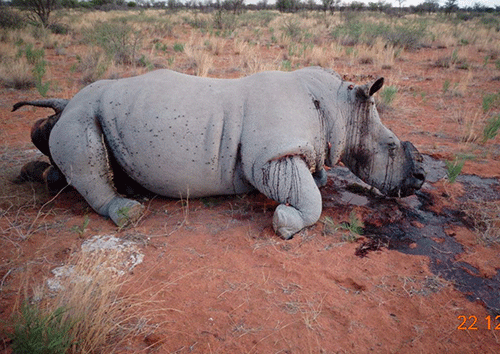UITKOMS – As the population of Farm Uitkoms grows, crimes and social ills such as poaching, stock theft and drug and alcohol abuse are skyrocketing.
Farm Uitkoms, housing mainly marginalised Namibians some 160km north-east of Okahandja, is seen as the epitome of self-sustainability in terms of government resettlement efforts.
In 2008, retired veteran politician Dr Libertina Amathila, who at the time held the portfolio of Deputy Prime Minister, vigorously spearheaded a campaign that saw the marginalised San community resettled at this farm.
At the time, the government resettled the marginalised community with livestock and some game such as gemsbok. Some of the game species at Uitkoms like eland, warthog and Damara dik-dik were found on the farm before the resettlement.
The population of Uitkoms has since grown to house over 3 000 residents, including encroachers who have come to settle for farming purposes.
Due to the high influx of outsiders, the government served seven families from Farm Uitkoms in the Okondjatu area with eviction notices during 2016.
The families, most of whom are San, were given instructions that they were occupying the government resettlement farm unlawfully. Despite demands to vacate, they refused.
Although Uitkoms’ chief Katae August only serves as a foreman at the farm, he expressed concern over the high incidences of crime there and surrounding farms.
“Stock theft and poaching is a serious challenge among the youth here. They are going into nearby farms and camps, and steal livestock and poach wild animals to sell. They are not necessarily stealing for meat consumption, but to sell and get money for drugs and alcohol. We are working together with the police to combat crime, but as a chief, I have no power to evict criminals off the farm. I can’t do much as it will be seen as kicking people off the farm,” he lamented.
Last week, August said they found a poached fresh carcass of a gemsbok on the farm, which they reported to the police for investigations.
Otjozondjupa governor James Uerikua said the farm is surrounded by game reserves and game farms.
One of the challenges facing the Otjozondjupa leadership is the preservation of protected species in terms of wildlife.
During the 2021/22 financial year, the Otjozondjupa regional police managed to arrest perpetrators of protected wildlife crimes such as on pangolins and other species.
In terms of the serious crime of stock theft, Uerikua stressed that it remains a hurdle for farmers in both commercial and communal areas.
During the same 2021/22 period, the police managed to recover a total of 116 heads of cattle and 94 small stock with a combined value of N$1,8 million.
In addition, wild animal carcasses, inclusive of 35 oryx, 16 kudus and 10 springboks worth N$188 500, were recovered.
The law-enforcement agencies also managed to intercept seven suspects with fake permits from Epukiro in the Omaheke region at the Kalkfeld-Outjo-Otjiwarongo T-junction, where they were found in possession of the carcasses of various game to the value of N$79 000.
Uitkoms youth activist Sebulon Khoeseb corroborated chief August’s views.
“As a youth, unemployment is very high. There are no job opportunities here. Most young people only get seasonal jobs, and later they return to rely on their grandmother and grandfather’s social grants. We want jobs through the National Youth Service.
We have vast land. We can start pig farming; we can venture into aquaculture. We just need training and equipment to start. This can reduce crimes such as poaching and stock theft because the youth will be engaged,” reasoned the unemployed youth.
Khoeseb added that youth activists in the area are waiting for the police from Otjiwarongo to come and give them training on community policing, as well as drug and alcohol abuse.
He furthermore proposes that government trains and equips them so that they can also start economically viable projects such as poultry and aquaculture farming.
“This will also reduce incidences of young girls exchanging sex for money for food, like its being practiced here at Uitkoms,” he noted.
–anakale@nepc.com.na


